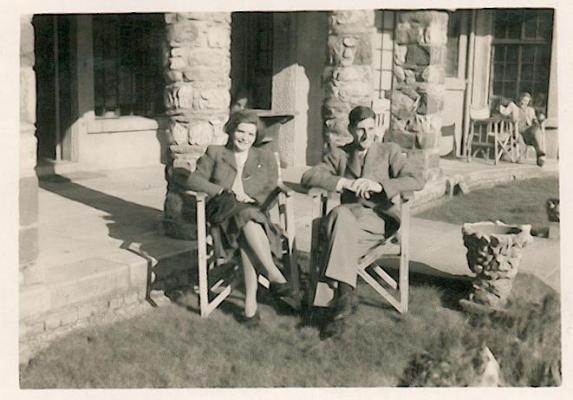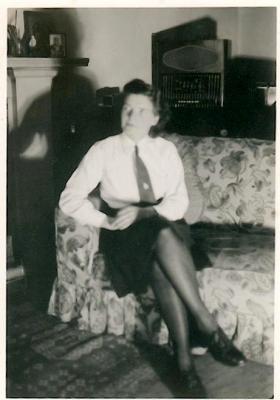As each Anzac Day approaches, my thoughts travel across the oceans to remember Richard and Marguerite. Richard only had one chance to step upon this wide brown land, while ‘Rita’ never made it at all.
Richard’s life was scarred from an early age when his father lost his life to septicemia, fighting with the 38th London Regiment during World War 1 in March, 1917. Richard was four years old.
An adventurous life was clearly in the blood, however, as Richard signed up to the British Royal Navy at an early age, before entering World War 2 and enduring the Battle of Britain and the Blitz in London where he was then stationed.
In 1941 he was based in the ‘war room’ under London’s Admiralty as a senior wireless officer, engulfed in the initially unsuccessful attempt to sink the German battleship Tirpitz which was skulking in a Norwegian fjord. Churchill himself was at times believed to be present.
It was there that Richard met Rita, a WREN and fellow wireless operator.
Richard’s love for music, but his inability to play it, was seamlessly balanced by Rita’s in-depth command of all music, being born into a household where her mother was an accomplished pianist and her father concertmaster for the then-Reid Orchestra.
They became inseparable, taking in the countless shows and concerts that shored up London’s fragile morale, dancing like there was no tomorrow – a very real prospect then.
They married in 1943 and survived the war, Rita returning to her native Edinburgh while Richard remained in service, at various on- and off-shore naval roles, including serving for one whole week under Prince Philip on his ship in 1949 just before Phillip responded to a ‘higher calling’.
It was also that year when the pair started a family, which would result in a girl and two boys. The post-war future looked full of clear skies and great fortune.
In the fifties, still with the Navy, Richard became a sought-after radar specialist and commuted weekly from Edinburgh in Scotland to a secret location near England’s Blackpool, tackling the roads in his trusty, sporty Riley 1½.
It was late 1961 when the cancer was detected on Rita’s breast.
Her ageing parents did what they could to shoulder the parental load while she was treated, and while Richard continued his essential commutes he sought to spend as much time home as he could.
Richard had visited Italy in 1932 while on shore leave, and again, with Rita in 1952, to stare awestruck like so many before at Raphael’s The Transfiguration in Pinacoteca Vaticana.
They had earnestly hoped to re-visit in 1962 and every other second year of the decade thereon, but the insidious cancer stripped away that dream when Rita, aged 44, five months before Lee Harvey Oswald’s bullets would rip apart another fairytale romance.
Richard managed to make the pilgrimage to Italy, alone, in 1972 and 1982 – and also made that short visit to Australia in 1983.
In late 1992, he proved to be a late casualty of World War 2 “friendly fire” – falling victim to mesothelioma contracted from the asbestos-covered handrails and pipes of the warships upon which had served all those years ago. He died at age 80.
And so on each April 25, as I watch the old soldiers gather for their annual pilgrimage, I feel the great distance, yet the close bonds forged those many years ago – and am honoured and proud to turn my thoughts to my father, Lt Cmdr Richard Harcourt Lander, RN, and my mother, former WREN, singer, pianist, actor and poet, Marguerite Watt-Jupp, and thank them for all they did to find me here, safe, well and complete.
Lest I forget.




![[READER COMPETITION] – Win a family ticket to see The Riddle of Washpool Gully at the J](https://noosatoday.com.au/wp-content/uploads/2026/02/washpool-gully-1-324x235.png)





